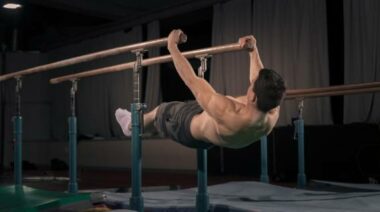Recent evidence suggests that elite athletes tend to have faster, more efficient brains than non-athletes. Frontiers in Psychology published the results of the study, which was designed to investigate a potential relationship between athletic excellence and higher cognitive and perceptual skills.
The study involved 87 athletes (Brazilian volleyball players, some of whom had competed in the London and Beijing Olympics) and 67 non-athletes, both junior and adult. The 154 participants performed the same cognitive battery, including tests of their memory, visuo-spatial attention, and executive control. They also filled out a fitness questionnaire that examined their health rating, weekly frequency and duration of exercise, and years of training.
The tasks cognitive battery included: task-switching ability tests, stopping tasks, visual short-term memory tasks, useful field of view tasks, flanker tasks, and change detection tasks.
To determine the differences between the athletes and non-athletes, the researchers measured reaction time and accuracy on the cognitive tests. Group, gender, and age were fixed factors.
The study found that previous education and gender had no significant effect on the reaction time of the cognitive tests. However, the athletes reacted significantly faster than the non-athletes, and the younger groups performed noticeably better than the older groups.
The accuracy of their reactions was unaffected by any of the fixed factors.
Essentially, these results indicate that the athletes were better able to inhibit behavior and stop faster than their non-athletic counterparts. This is a very important for sports performance, as a faster reaction and stopping time plays a vital role in all sports. In addition to faster stopping time, the athletes had a faster information pick-up speed. They were able to absorb information at a glance, switch between tasks, and remember data more efficiently than the non-athletes.
An interesting side note: among the athletes, both men and women responded to the cognitive battery equally. Among the non-athletes, however, females performed mental calculations more slowly and had a longer reaction time than their male counterparts. Simply put, exercise levels the mental playing field. Men and women alike can improve their cognitive function by engaging in competitive sports.
People who want to improve performance—mental as well as physical—are highly encouraged to take up sports. The cognitive benefits of sport expertise, acquired through years of training, are significant, and can lead to better overall cognitive function. Coaches can also tailor their training programs to improving cognitive ability by engaging in more tasks that sharpen the memory, visuo-spatial attention, and reaction time.






